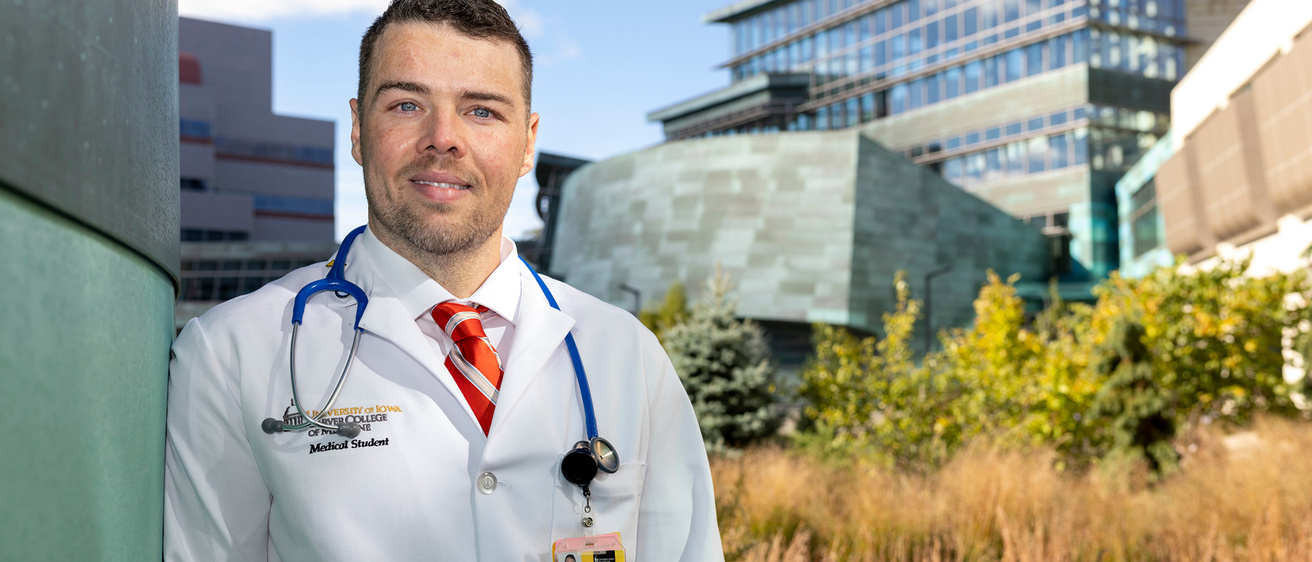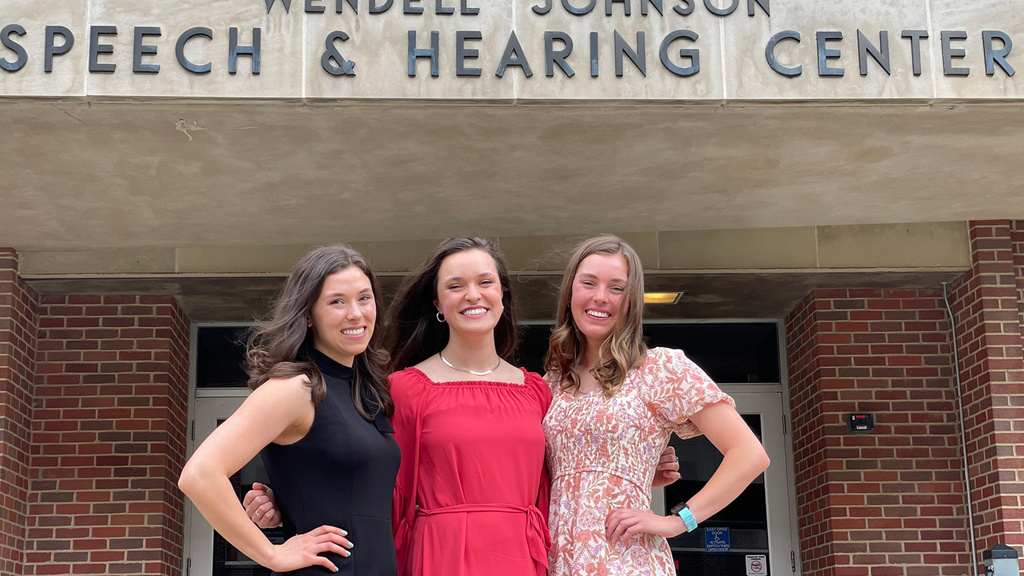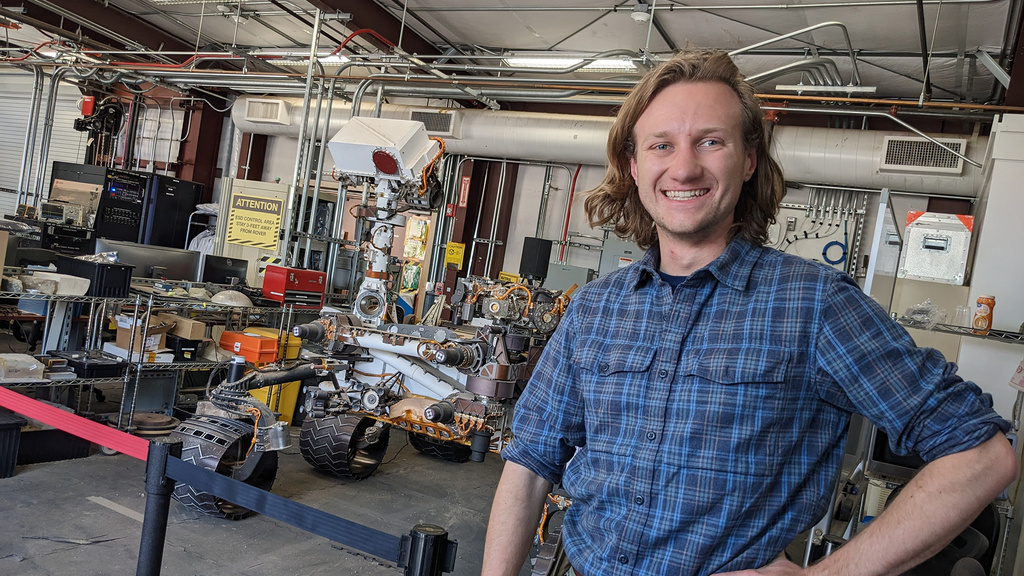First-year Carver College of Medicine student Joseph McDonell hopes to expand health care services to rural Iowans. The Coggon, Iowa, native is assisting with the creation of a remote health monitor, and he advocates for continued development of telehealth programs.
Story: Katie Ann McCarver
Photography: Liz Martin
Published: Nov. 10, 2021
Joseph McDonell attributes his med-school ambition to the health care providers in his hometown of Coggon, Iowa, who cared for his whole family when his mother was diagnosed with depression. After delaying his educational journey more than a decade, the first-year University of Iowa Carver College of Medicine student now is ready to follow in their footsteps.
“I had local doctors who really assisted and went above and beyond the typical call of their duty,” says McDonell, 35. “We were pretty poor—one time we were trying to find a schoolbag, and the local physician helped us get one so that we had stuff to go to school with. That really spoke to me. I would love to be that person one day.”
McDonell chose to postpone his pursuit of higher education so that he could help his mom after her diagnosis. He worked as a heavy equipment operator in the interim and had two children of his own: Eli, 7, and Tommy, 5.
By age 29, his desire to provide compassionate care remained strong. He began studying physiology while pursuing an associate’s degree at Kirkwood Community College; since then, he’s earned bachelor’s and master’s degrees.
“I took that dive, and I’ve completely immersed myself into trying to emulate those health care providers from my childhood,” McDonell says.
McDonell, who wants to be a neonatal intensivist, hopes to help small-town Iowans who may not have convenient access to health care. Growing up in a town of less than 1,000 people, McDonell says he had to travel at least 45 minutes to reach the nearest hospital, and his family would consequently go long periods without seeing a health care provider.
“That was my normal,” he says. “And I didn’t realize it was much of an issue until we would have an emergency.”
“I’ve completely immersed myself into trying to emulate those health care providers from my childhood.”
Fortunately, McDonell says, there was an ambulance service that helped residents in his town. Services like these are becoming less common, however. Ambulances from larger communities often have to drive out and pick up patients from rural communities, he says.
Such a strenuous trip is nerve-wracking for individuals and families dealing with a medical emergency, McDonell says, citing his own experience in ambulances when his mom overdosed on medication.
“Traveling that distance, while you’re worried about whether somebody is going to live, is absolutely unacceptable,” he says. “That idea of having a health care service so far away was the first stirrings in me of ‘Maybe I could do something about that.’ Coming from those roots and understanding those major health care issues was enough for me to try to elicit some change.”
To help small-town Iowans, McDonell is aiding in the creation of a device to track clinical quality measurements of individuals with chronic obstructive pulmonary diseases (COPD), so that health care providers can screen them remotely and send medications directly to their local pharmacy.
Medicine at Iowa
The Roy J. and Lucille A. Carver College of Medicine is a highly ranked medical school where students learn to become accomplished clinicians and top-flight researchers and educators. Students come to Iowa to study medicine in a program that uses case-based learning as the basis of their education.
“We have many different types of folks that live far, far away from these larger communities—this is my first venture into actually trying to make a difference in these people’s lives,” he says. “My goal with the company that I’m growing and this device that I’m building is to prevent those people from having to leave their homes, and help them keep track of what’s going on with their bodies, instead of letting their morbidity get out of control.”
Though many rural communities in Iowa still have a long way to go before they have consistent, high-speed internet, McDonell says he is excited to see the continued development of telehealth screenings and appointments across the state.
“I see telehealth providers being a new subspecialty,” he says. “I would like to be at the forefront of developing that specialty to help these individuals because I think meeting people where they’re at—virtual house calls—that’s really what I want to bring to medicine in Iowa.”



